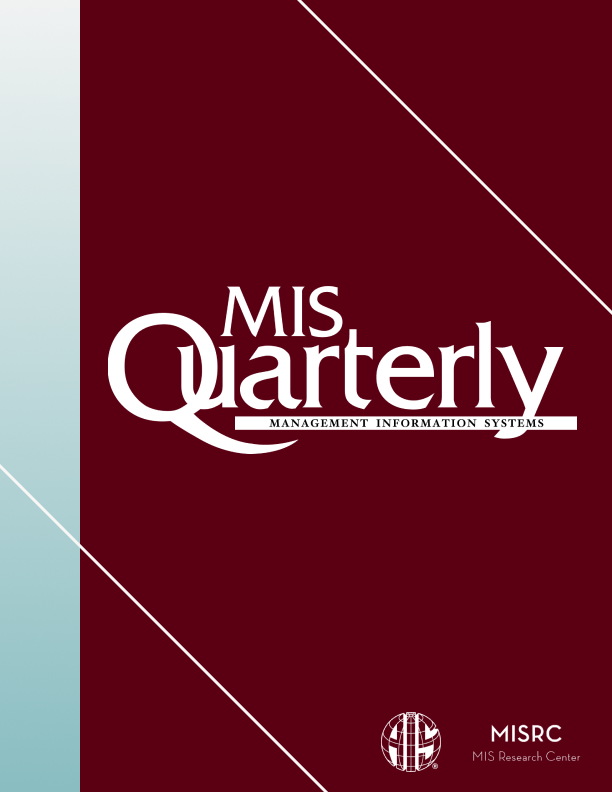The Path of the Righteous: Using Trace Data to Understand Fraud Decisions in Real Time
IF 7
2区 管理学
Q1 COMPUTER SCIENCE, INFORMATION SYSTEMS
引用次数: 8
Abstract
Trace data—users’ digital records when interacting with technology—can reveal their cognitive dynamics when making decisions on websites in real time. Here, we present a tracedata method, analyzing movements captured via a computer mouse, to assess potential fraud when filling out an online form. In contrast to existing frauddetection methods, which analyze information after submission, mousemovement traces can capture the cognitive deliberations as possible indicators of fraud as it is happening. We report two controlled studies using different tasks, where participants could freely commit fraud to benefit themselves financially. As they performed the tasks, we captured mousecursor movement data and found that participants who entered fraudulent responses moved their mouse significantly more slowly and with greater deviation. We show that the extent of fraud matters such that more extensive fraud increases movement deviation and decreases movement speed. These results demonstrate the efficacy of analyzing mousemovement traces to detect fraud during online transactions in real time, enabling organizations to confront fraud proactively as it is happening at internet scale. Our method of analyzing actual user behaviors in real time can complement other behavioral methods in the context of fraud and a variety of other contexts and settings.正义之路:使用跟踪数据实时理解欺诈决策
追踪数据——用户在与技术交互时的数字记录——可以实时揭示他们在网站上做出决策时的认知动态。在这里,我们提出了一种跟踪数据方法,分析通过计算机鼠标捕获的运动,以评估填写在线表格时潜在的欺诈行为。与现有的欺诈检测方法(在提交信息后进行分析)相比,鼠标移动痕迹可以捕捉到正在发生的欺诈行为的认知审议作为可能的指标。我们报告了两项使用不同任务的对照研究,参与者可以自由地进行欺诈以获得经济利益。当他们执行任务时,我们捕获了鼠标光标移动的数据,发现输入欺诈性回答的参与者移动鼠标的速度明显更慢,偏差也更大。我们表明,欺诈的程度很重要,因此更广泛的欺诈会增加运动偏差并降低运动速度。这些结果证明了分析鼠标移动轨迹以实时检测在线交易中的欺诈行为的有效性,使组织能够在互联网规模上主动应对欺诈行为。我们实时分析实际用户行为的方法可以在欺诈和各种其他背景和设置的背景下补充其他行为方法。
本文章由计算机程序翻译,如有差异,请以英文原文为准。
求助全文
约1分钟内获得全文
求助全文
来源期刊

Mis Quarterly
工程技术-计算机:信息系统
CiteScore
13.30
自引率
4.10%
发文量
36
审稿时长
6-12 weeks
期刊介绍:
Journal Name: MIS Quarterly
Editorial Objective:
The editorial objective of MIS Quarterly is focused on:
Enhancing and communicating knowledge related to:
Development of IT-based services
Management of IT resources
Use, impact, and economics of IT with managerial, organizational, and societal implications
Addressing professional issues affecting the Information Systems (IS) field as a whole
Key Focus Areas:
Development of IT-based services
Management of IT resources
Use, impact, and economics of IT with managerial, organizational, and societal implications
Professional issues affecting the IS field as a whole
 求助内容:
求助内容: 应助结果提醒方式:
应助结果提醒方式:


